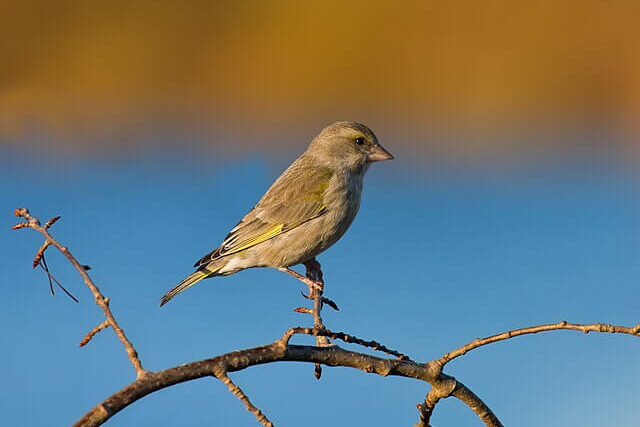
The United Kingdom’s gardens are experiencing a decline in wild bird populations, particularly affecting species such as greenfinches, starlings, and sparrows, according to the Royal Society for the Protection of Birds (RSPB).
This concerning trend coincides with the launch of the RSPB’s annual Big Garden Birdwatch, the world’s largest wildlife citizen science initiative.
The decline in once-abundant species contrasts with the thriving populations of goldfinches, woodpigeons, and parakeets.
An analysis of survey data reveals a consistent decrease in wild bird sightings over the past two decades. Participants in the survey now observe an average of four fewer birds per hour compared to twenty years ago, with the average count dropping from 28 to 24 birds.
Beccy Speight, chief executive of the RSPB said: “Sadly this snapshot is a reminder of how many of our most loved birds are at the forefront of the nature and climate emergency.”
Climate change emerges as a significant factor contributing to these declines, disrupting seasonal patterns and impacting breeding behaviours.
Early springs prompt premature breeding, exposing fledglings to sudden temperature fluctuations and food scarcity.
Since its inception in 1979, the Big Garden Birdwatch has engaged up to half a million participants annually, who dedicate an hour to birdwatching in their gardens, balconies, or local parks over a designated weekend in January. The RSPB encourages widespread participation in this year’s survey, emphasising its importance in monitoring bird populations.
While the survey captures a weekend snapshot and predominantly records birds near human settlements, its findings align with broader trends observed in systematic surveys.
A study by the British Trust for Ornithology revealed a decline in nearly half of all bird species, with a staggering 72 million drop in bird numbers since 1970.
The sharpest declines affect once-familiar species like sparrows, starlings, and greenfinches. Although post-2000 results hint at modest recoveries for sparrows and greenfinches, starlings continue to suffer an over 80% decline in numbers over four and a half decades.
The decline in starling populations can be attributed to factors such as habitat loss, agricultural chemicals, and food shortages. Greenfinches face additional challenges due to the spread of trichomonosis, a disease transmitted through contaminated birdfeeders.
Conversely, certain species have thrived amidst these challenges. Goldfinches, absent from the top rankings in 1979, now rank seventh, benefiting from increased birdfeeder use. Woodpigeons have surged from thirteenth to fourth place, with sightings increasing tenfold, indicating “internationally significant” population numbers.
The long-tailed tit has also emerged as a success story, ascending from obscurity to regular appearances in the top ten species. Climate change has created more favourable conditions for this species in the UK.
Anne Brenchley, a seasoned birdwatcher from North Wales, laments the decline in less common species like treecreepers, nuthatches, and green woodpeckers in her garden, echoing sentiments shared by many British birdwatchers.
“We still get lots and lots of common birds”, says Anne, “but the numbers of some of the more unusual birds have gone down”.
——————————————————————————
At Natural World Fund, we are passionate about stopping the decline in our wildlife.
The decline in our wildlife is shocking and frightening. Without much more support, many of the animals we know and love will continue in their decline towards extinction.
When you help to restore a patch of degraded land through rewilding to forests, meadows, or wetlands, you have a massive impact on the biodiversity at a local level. You give animals a home and food that they otherwise would not have had, and it has a positive snowball effect on the food chain.
We are convinced that this is much better for the UK than growing lots of fast-growing coniferous trees, solely to remove carbon, that don’t actually help our animals to thrive.
This is why we stand for restoring nature in the UK through responsible rewilding. For us, it is the right thing to do. Let’s do what’s right for nature!
Donate today at https://naturalworldfund.com/ and join in the solution!

